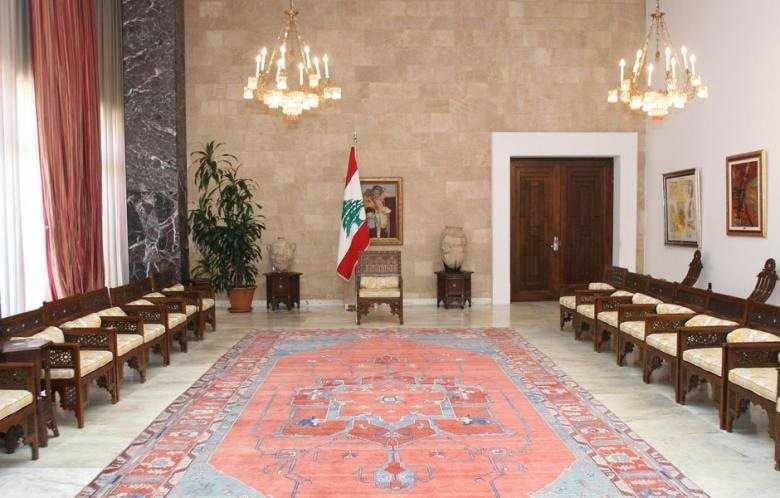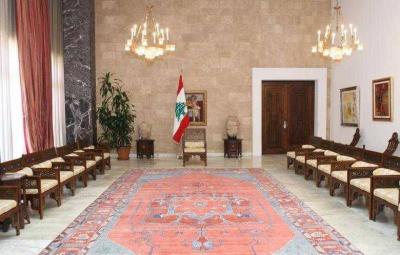Political activity is set to resume with the beginning of the upcoming year, with significant efforts expected to address the presidential vacancy that has settled in Baabda Palace. French presidential envoy Jean-Yves Le Drian and Qatari envoy Jassim bin Fahd Al Thani (Abu Fahd) are anticipated to return to Beirut, operating within the framework of the five-member committee that includes representatives from France, the United States, Saudi Arabia, Qatar, and Egypt, as reported by "Al-Liwaa".
Currently, there are no developments to rely on regarding the election of a president, but the envoys visiting Beirut, each separately, are expected to bring information and ideas from the five-member committee, contingent on serious international intent to assist Lebanon in overcoming its political crisis, which branches out into multiple crises across various sectors. French Foreign Minister had earlier urged Lebanese officials during her visit to Beirut to expedite the presidential file, which she stated should be a priority following the extension of the Army Commander's term, calling it a correct step.
In this context, House Speaker Nabih Berri informed political figures who visited him recently that he intends to initiate a series of communications urging political forces to reach consensus after the holiday break, rejecting the characterization of this initiative as a "proposal," stating rather that it is an effort associated with hopes rather than expected outcomes, akin to "if only."
Accordingly, according to "Al-Liwaa," it is not prudent to promote excessive optimism since obstacles remain unchanged. Moreover, a new stumbling block has recently emerged from the French stance on the Gaza war, followed by a surprising position from French President Emmanuel Macron, who labeled Hezbollah a terrorist organization, despite clarifications suggesting that President Emmanuel did not mean that.
Based on some information, the French move appears to encroach upon the Qatari initiative, which has reached an advanced stage in promoting its proposal, putting forward three names: MP Neemat Frem, the Army Commander, and General Security Director Elias Bissari, who could potentially garner some consensus, noting that the "Lebanese Forces" still oppose him, while the "Shiite duo" is waiting for the decision from Sleiman Frangieh, head of the "Marada Movement."
However, given the serious developments affecting the region and the threats facing Lebanon, parliamentary sources do not rule out the possibility of softening hardened internal positions leading up to the election of a president in the early months of the coming year. The upcoming spring may bring positive signs in this regard, especially since the legislative session that extended the Army Commander and heads of security agencies revealed the potential for replicating the consensus achieved during this session at the presidential election level. This does not imply a direct connection between the two issues, meaning that Army Commander Joseph Aoun's stakes should not be affected by his extension, nor by the outcomes of the appeal that the Free Patriotic Movement is expected to present regarding the legality of the extension.
It is noted that some positions expressed after the session strengthened this belief, in light of the openness exhibited by opposition forces towards reaching a consensus for electing a president, including the Lebanese Forces.
Sources believe that the opportunity is now ripe for realizing the presidential election since the countries involved in this file are still allocating a portion of their attention in the region to the Lebanese situation. Consequently, Lebanese political forces must descend from their rigid positions and engage with international interest to agree on electing a president. The future of regional developments is uncertain; we might reach a point where the Lebanese file becomes the last item on the regional and international agenda. Therefore, decision-makers must take the initiative to offer mutual concessions that lead to finding common ground for a consensus figure that will end the existing vacancy. Otherwise, we may face a prolonged presidential vacuum, potentially leaving the current parliament incapable of electing a new president for the country, and until then, Lebanon will remain in a cycle of crises.
However, the same sources are skeptical about the likelihood of electing a president purely through Lebanese efforts. They believe that the words of Maronite Patriarch Bechara Al-Rahi in this context clearly demonstrate this point, as he mentioned in his Christmas sermon that Lebanese parliament members cannot give what they do not possess concerning the presidential election, lamenting their inability to facilitate a transformation that enables them to elect a competent, honest, free, and disinterested president.




